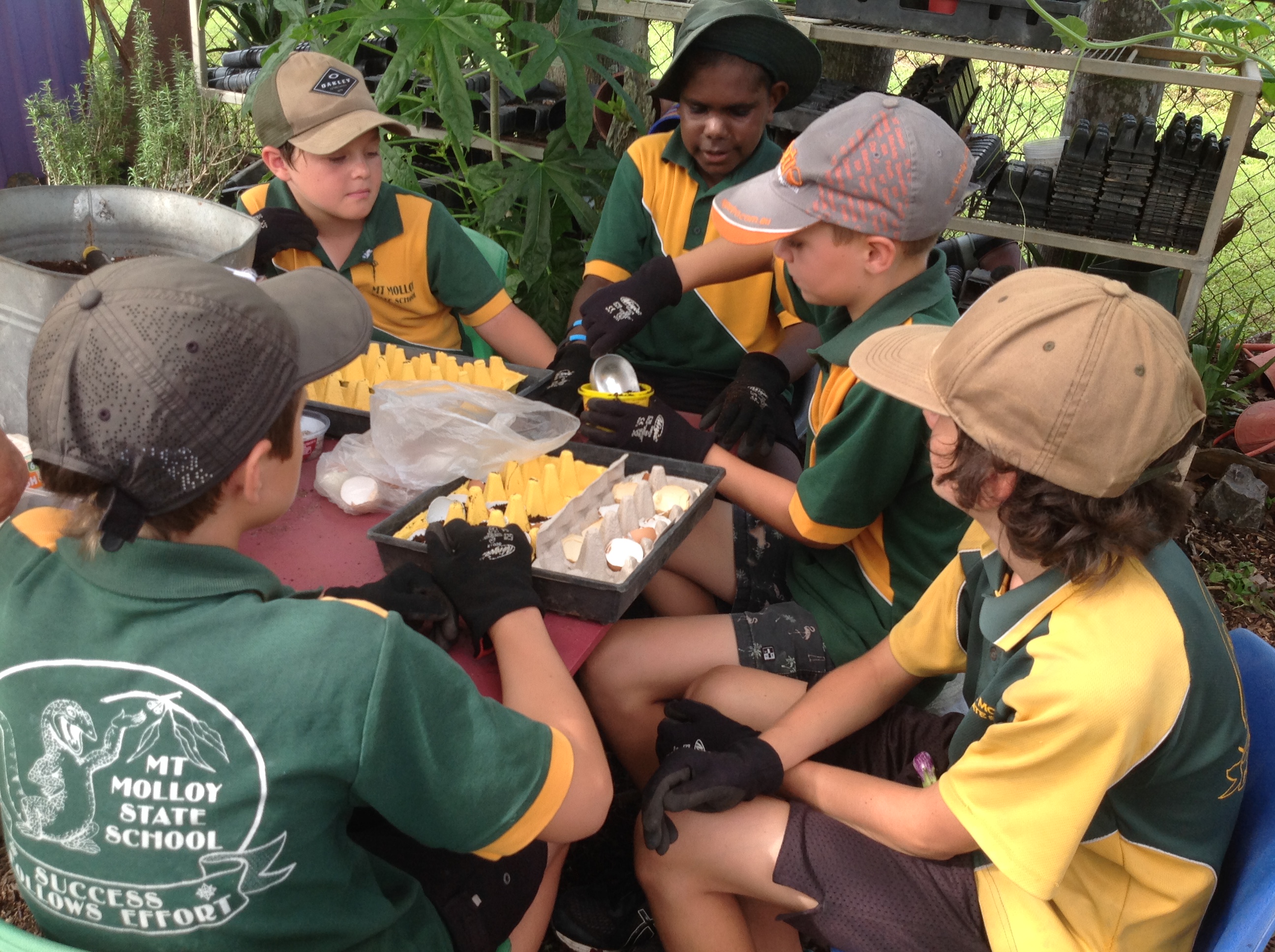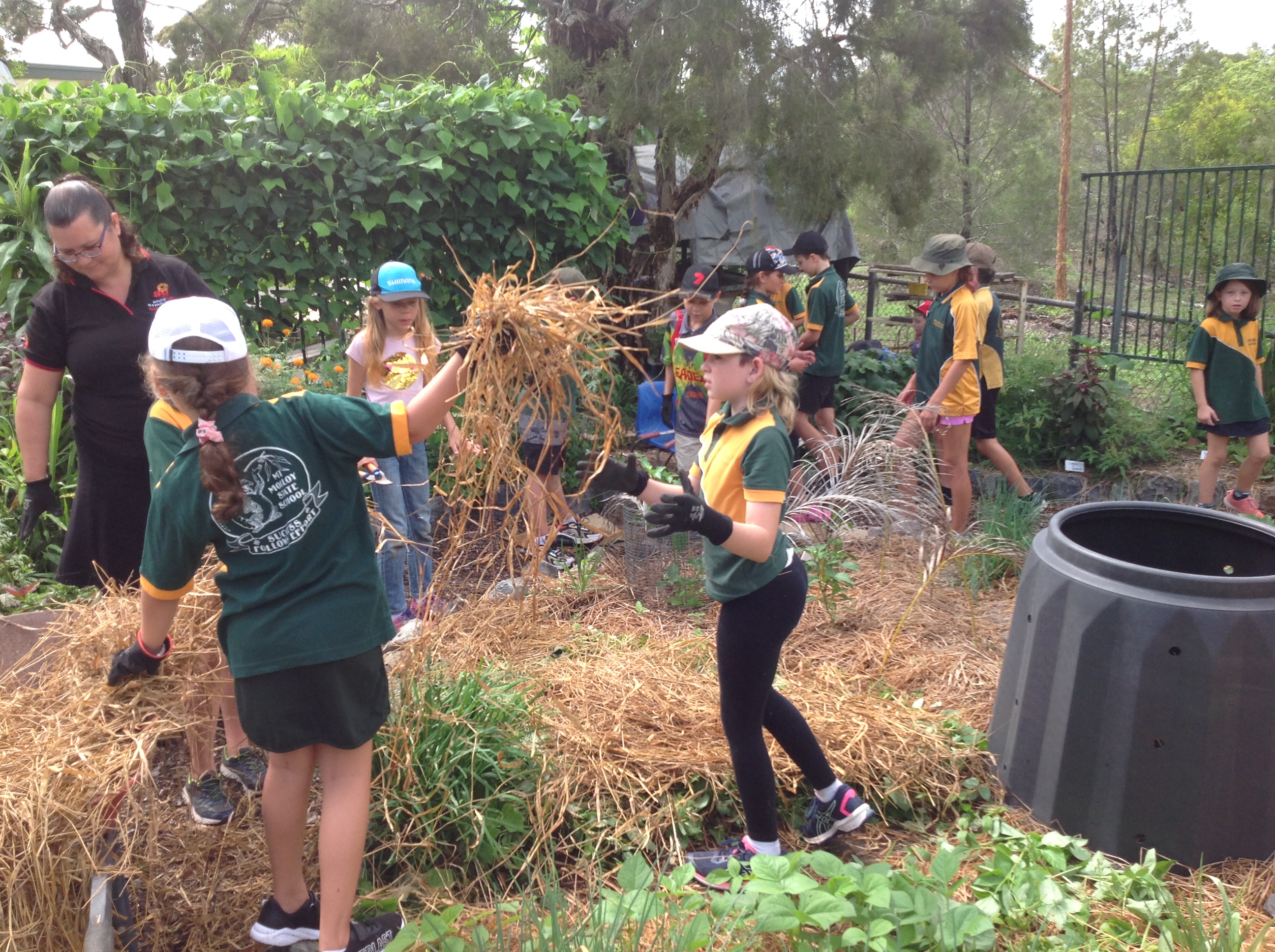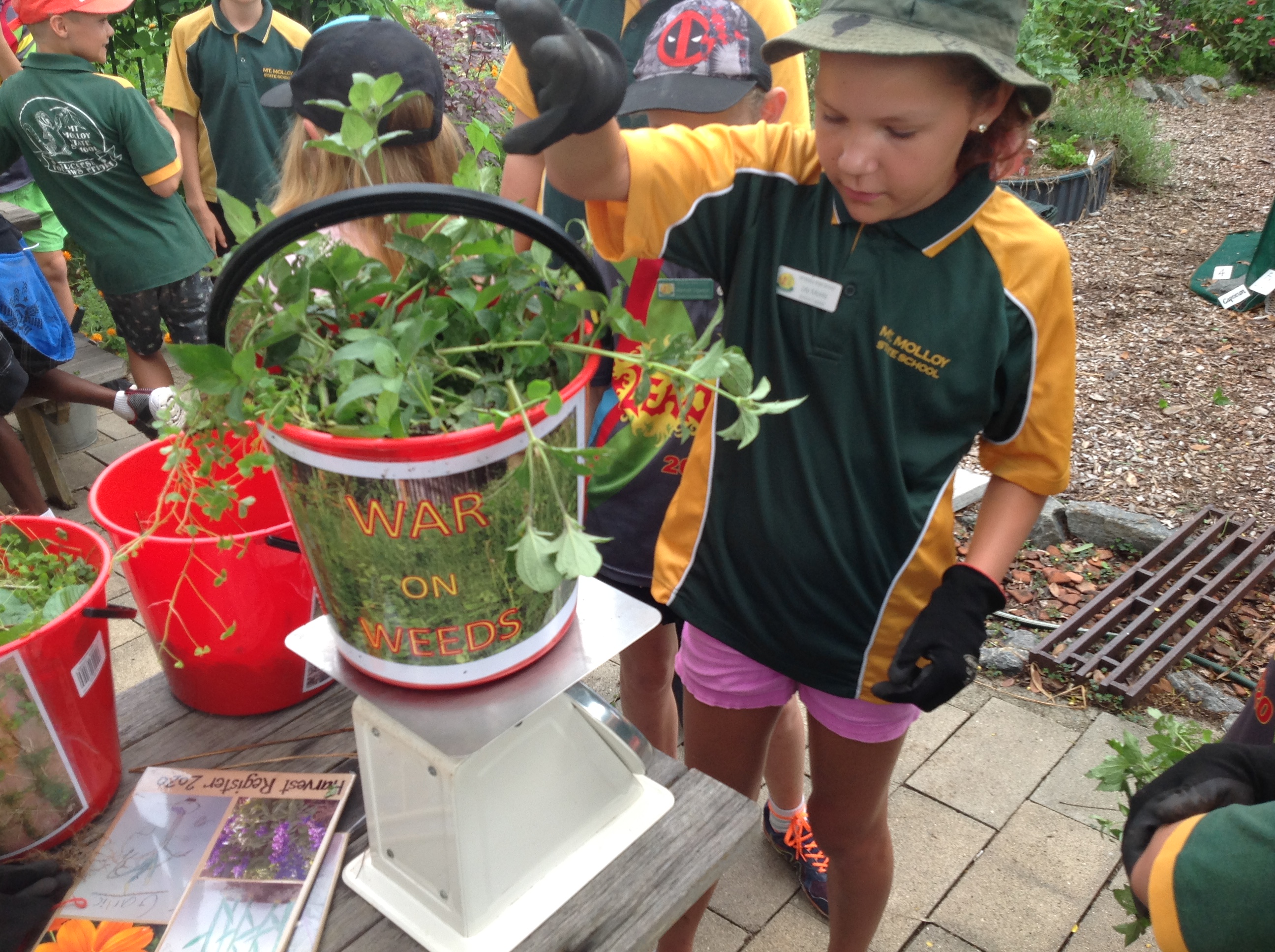






The Kitchen Garden Program was first established in 2012 at Mount Molloy State School as an experiential learning program by Stephanie Alexander and Mount Molloy State School.
Every Friday the students participate in our Kitchen Garden program. The upper and lower school students rotate between the kitchen and in their organic vegetable garden which they helped to design and build, and now maintain in our school grounds.
Volunteers are welcome to assist in this invaluable program. Please contact the office to register as a volunteer.
The aim of the Stephanie Alexander Kitchen Garden program is to introduce pleasurable food education which emphasises the flavours as well as the health benefits of fresh, seasonal food into as many Australian primary schools as possible.
Through a kitchen garden program, children learn:
· positive food habits for life
· about their natural environment, the seasons, and how to care for gardens
· practical skills, from recycling, composting and preserving to budgeting and fundraising
· life skills, such as cooperating, sharing, critical thinking and leadership
· by doing and having fun (they don’t even realise they’re learning)
· to be engaged, especially those who face barriers learning in the traditional classroom environment.
Links to the curriculum
There are countless opportunities for embedding pleasurable food education into the curriculum. Kitchen garden learning can be integrated with learning requirements – from measuring garden areas and perimeters in mathematics to exploring seed growth in science, developing procedural text through recipes and sharing cultures through menus and celebrations.
A kitchen garden program can also support wellbeing programs, cross-age tutoring between students, inquiry learning, project- or problem-based learning and interdisciplinary approaches, such as STEAM.
Benefits for schools
Kitchen garden programs give schools:
· practical skills for growing and preparing fresh, seasonal, delicious food
· a hub for community engagement as educators, families, students, business owners and others from the community come together to share food, learn and have fun
· an understanding of the importance of food systems, food security and sustainability
